China Cuts Rates to Boost Slowing Economy
By Rediff Money Desk, Beijing Sep 24, 2024 12:30
China's central bank has cut interest rates and reserve requirements to support its slowing economy, particularly the struggling property market. The move aims to stimulate lending and encourage home buying.
Beijing, Sep 24 (AP) China rolled out a raft of measures Tuesday aimed at countering a prolonged downturn in its property market that is weighing on the world's second largest economy.
The chief of China's central bank said it would cut the amount of reserves banks are required to keep. It also slashed interest rates on its loans to commercial banks, reduced required down payments for some property purchases and promised other moves to revive the slowing economy.
Disruptions and job losses during the COVID-19 pandemic, coupled with falling prices for homes, have left many Chinese unwilling or unable to spend, despite government efforts to encourage purchases of homes, electric vehicles and other big-ticket items.
People's Bank of China Gov. Pan Gongsheng told reporters in Beijing that the reserve requirement for banks would be cut by 0.5 percentage points in the near term, and that the central bank would follow up with further cuts. That would free up more money for lending.
The news lifted share prices, especially for real estate developers. Hong Kong's Hang Seng index jumped 3.6 per cent, while the Shanghai Composite index was up 3.4 per cent.
The central bank also plans new policies to support stable development of the stock market, Pan and other officials said.
Analysts said the latest, coordinated approach to supporting the property sector might be more effective than earlier, piecemeal efforts that so far had brought only scant relief.
It's a step in the right direction, Julian Evans-Pritchard of Capital Economics said in a commentary. But it will probably be insufficient to drive a turnaround in growth unless followed up with greater fiscal support, he said.
The housing market has floundered after authorities cracked down several years ago on excessive borrowing by developers, leading many to default on their debts and to fail to deliver apartments buyers had already paid for.
Housing is a main form of investment in China and it also supports many other industries, such as construction, home decorating and home appliances, among others.
China's regulators have avoided the kind of massive government spending packages Beijing used in the past to rev up growth, wary of creating a property market bubble. But disruptions and job losses during the COVID-19 pandemic, coupled with falling prices for homes have left many Chinese unwilling or unable to spend, sapping the economy of other engines driving business activity.
The economy grew at a 4.7 per cent annual rate in the last quarter after expanding 5.3 per cent in the first three months of the year. Recently, Chinese leader Xi Jinping urged officials to do more to get growth back on track.
Given President Xi's recent call for policymakers to strive to achieve the growth target, we've been expecting increased urgency for policy support rollout, economists at ING said in a report.
Pan, the central bank governor, said down payment requirements for buyers of second homes would be reduced to 15 per cent from 25 per cent and that interest rates for mortgages would be cut by about 0.5 per cent .
That would help 50 million households and 150 million people, reducing household interest expenses by an average of about 150 billion yuan (USD 21 billion) a year, he said.
The chief of China's central bank said it would cut the amount of reserves banks are required to keep. It also slashed interest rates on its loans to commercial banks, reduced required down payments for some property purchases and promised other moves to revive the slowing economy.
Disruptions and job losses during the COVID-19 pandemic, coupled with falling prices for homes, have left many Chinese unwilling or unable to spend, despite government efforts to encourage purchases of homes, electric vehicles and other big-ticket items.
People's Bank of China Gov. Pan Gongsheng told reporters in Beijing that the reserve requirement for banks would be cut by 0.5 percentage points in the near term, and that the central bank would follow up with further cuts. That would free up more money for lending.
The news lifted share prices, especially for real estate developers. Hong Kong's Hang Seng index jumped 3.6 per cent, while the Shanghai Composite index was up 3.4 per cent.
The central bank also plans new policies to support stable development of the stock market, Pan and other officials said.
Analysts said the latest, coordinated approach to supporting the property sector might be more effective than earlier, piecemeal efforts that so far had brought only scant relief.
It's a step in the right direction, Julian Evans-Pritchard of Capital Economics said in a commentary. But it will probably be insufficient to drive a turnaround in growth unless followed up with greater fiscal support, he said.
The housing market has floundered after authorities cracked down several years ago on excessive borrowing by developers, leading many to default on their debts and to fail to deliver apartments buyers had already paid for.
Housing is a main form of investment in China and it also supports many other industries, such as construction, home decorating and home appliances, among others.
China's regulators have avoided the kind of massive government spending packages Beijing used in the past to rev up growth, wary of creating a property market bubble. But disruptions and job losses during the COVID-19 pandemic, coupled with falling prices for homes have left many Chinese unwilling or unable to spend, sapping the economy of other engines driving business activity.
The economy grew at a 4.7 per cent annual rate in the last quarter after expanding 5.3 per cent in the first three months of the year. Recently, Chinese leader Xi Jinping urged officials to do more to get growth back on track.
Given President Xi's recent call for policymakers to strive to achieve the growth target, we've been expecting increased urgency for policy support rollout, economists at ING said in a report.
Pan, the central bank governor, said down payment requirements for buyers of second homes would be reduced to 15 per cent from 25 per cent and that interest rates for mortgages would be cut by about 0.5 per cent .
That would help 50 million households and 150 million people, reducing household interest expenses by an average of about 150 billion yuan (USD 21 billion) a year, he said.
Source: ASSOCIATED PRESS
Read More On:
DISCLAIMER - This article is from a syndicated feed. The original source is responsible for accuracy, views & content ownership. Views expressed may not reflect those of rediff.com India Limited.
You May Like To Read
TODAY'S MOST TRADED COMPANIES
- Company Name
- Price
- Volume
- Vodafone Idea L
- 10.41 (+ 0.48)
- 53727067
- GTL Infrastructure
- 2.41 (+ 4.78)
- 49996392
- Five-Star Business F
- 797.20 ( -1.39)
- 47756593
- Spicejet Ltd.
- 61.84 ( -0.87)
- 37121295
- Reliance Power L
- 44.16 (+ 4.99)
- 36538149
MORE NEWS

Gulf Oil Promoter Sells 4% Stake for Rs 263 Crore
Gulf Oil International Mauritius Inc. sold a 4% stake in Gulf Oil Lubricants India for...

Zaggle Acquires Stakes in Span Across IT &...
Fintech firm Zaggle invests Rs 48 crore in Span Across IT Solutions and Mobileware...

Swiggy Files Updated IPO Papers: Eyes Rs 3,750 Cr
Swiggy files updated IPO papers with Sebi, aiming to raise Rs 3,750 crore through fresh...



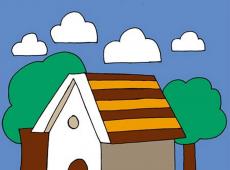
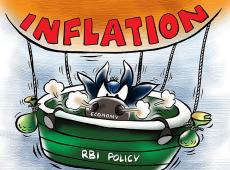
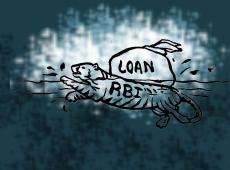

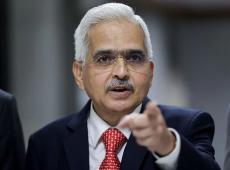
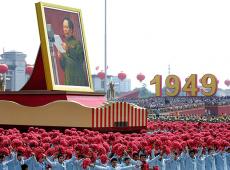

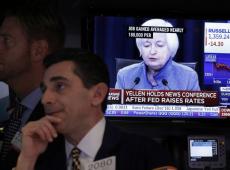
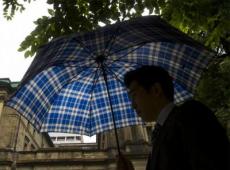
 © 2024 Rediff.com India Limited. All rights reserved.
© 2024 Rediff.com India Limited. All rights reserved.